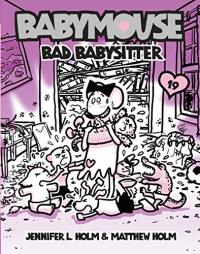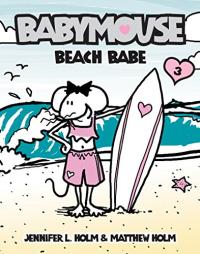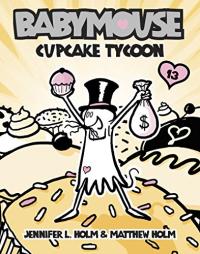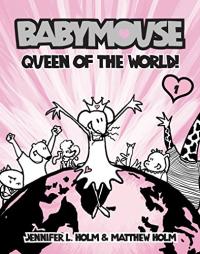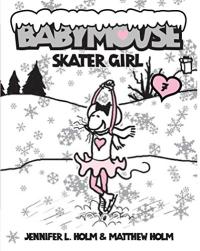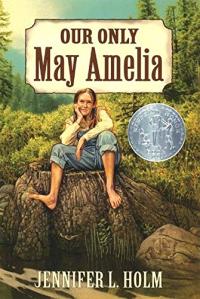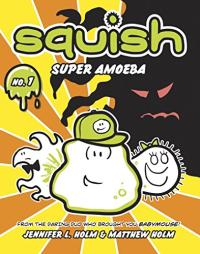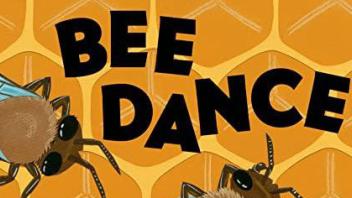
Biography
Holm grew up in Audubon, Pennsylvania with four brothers — including her co-author Matt Holm. After college, Holm worked briefly in television although she was always interested in writing. Our Only May Amelia, the story of a 12-year-old girl living in the late 19th century (inspired by a diary written by her great aunt) became her first published novel and was a 2000 Newbery Honor Book. She received a second Newbery Honor in 2011 for Turtle in Paradise, a story set in the Great Depression in Key West, Florida. With her brother Matt, she created two popular graphic novel series — Babymouse and Squish (an amoeba).
Holm has also collaborated with her husband, Jonathan Hamel, to create the “Stink Files” series featuring a British super-spy, who also happens to be a cat. Holm currently lives in California with Hamel and their two children.
Learn more at Jennifer Holm’s official website .
Find this author’s books on these booklists
Themed Booklist
Graphic Novels: Read the Pictures
Themed Booklist
Hit the Road, Rails, and Trails
Themed Booklist
Holiday Buying Guide 2008
Themed Booklist
Holiday Buying Guide 2011
Themed Booklist
Holiday Buying Guide 2016
Themed Booklist
Our Favorite Audiobooks
Themed Booklist
Summer Reading Guide 2010
Themed Booklist
